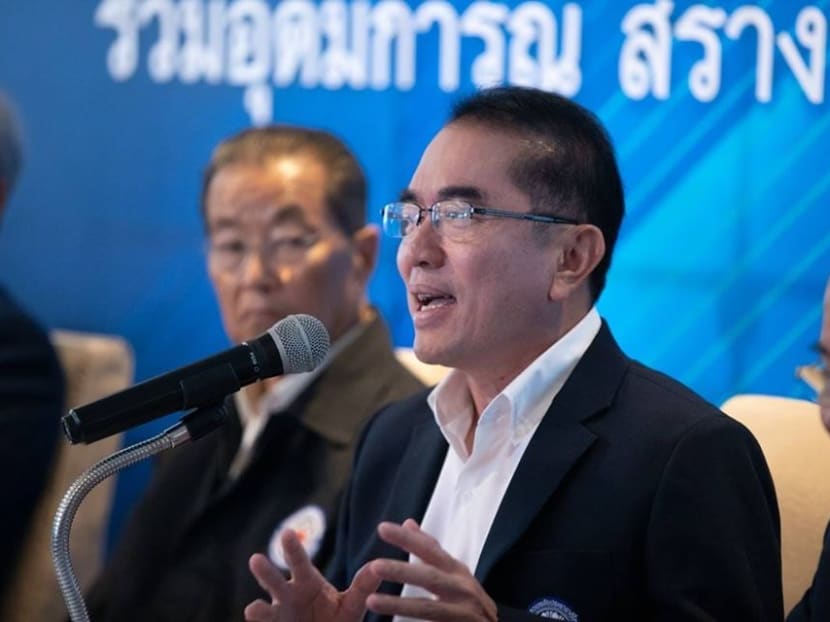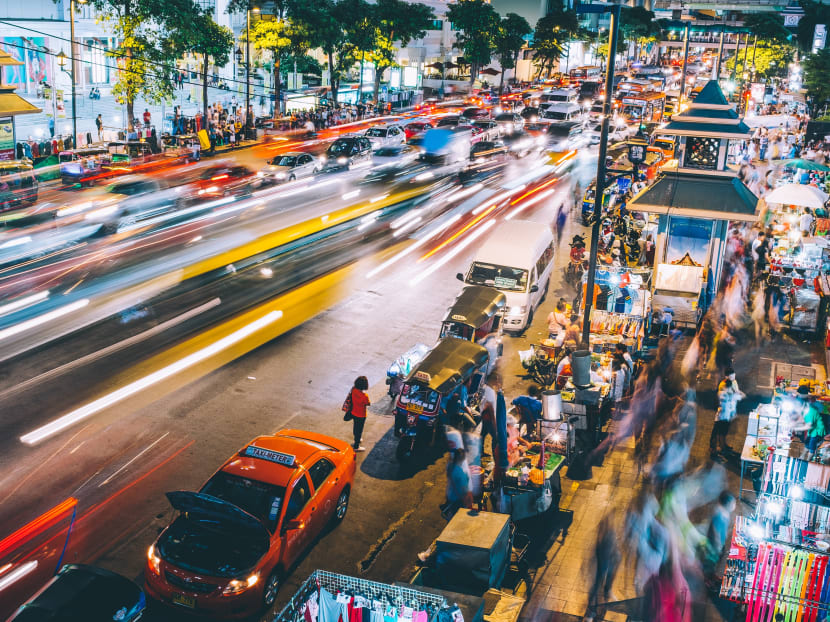Thai elites hide behind phoney shield of 'patriotism'
Why can't people hate their own country? Apparently we can. We can hate everything. We can be critical and we can complain as long as we remain within the limits of law and human decency.
Why can't people hate their own country? Apparently we can. We can hate the fact that most of Thailand's wealth is owned by the richest 1 per cent of Thais, about 500,000 of them. We can hate the bureaucratic red tape and dysfunctional systems that have bred corruption.
We can even hate the famous Thai smile if we believe it is a way to hide hideous facts about our own failings.
We can hate everything. We can resent what is bad and what is not working. We can roll our eyes and say: "This is Thailand". We can be critical and we can complain as long as we remain within the limits of law and human decency.
It's true that hate is a negative attribute that may not provide the best platform to drive an inclusive agenda.
But it's not a crime to hate aspects of Thai society and culture, especially if the people who "hate" them are using that passion to fuel an attempt to push for change.
The advent of the latest political campaign against people who chung chart, the unpatriotic lot, or literally people who hate their own country, is thus mystifying.
This fad is led by former Democrat Member of Parliament Warong Dechgitvigrom who recently joined the Action Coalition for Thailand Party, co-founded by "Bangkok Shutdown" firebrand Suthep Thaugsuban.
In a Facebook post, Mr Warong defined the unpatriotic as people who insult the monarchy, do not support religion, look down on their own culture, speak ill of their own country and refuse to accept court rulings.
Even though his definition of what construes an unpatriotic "crime" is amorphous, the right-wing politician has gone so far as to propose that a law be enacted to curb the practice.
Unfortunately, Mr Warong probably got a little too carried away when he called his proposed law an "Anti-Patriotism Act", which could confuse foreigners about what exactly he is talking about.

Thai politican Warong Dechgitvigrom. Photo: Warong Dechgitvigrom / Facebook
The chung chart campaign takes aim at politicians and people who stand on the liberal democratic side of Thai politics. The Future Forward Party which opposes military dictatorship and pushes a progressive agenda seems to be its major target.
Despite its floppy definition and lack of intellectual rigour, Mr Warong's chung chart campaign has found traction among right-wing conservatives and their supporters.
It would appear a massive amount of fear exists among members of this group, which is now in control of the country.
They must be so worried about demands for change. They must hate the energy that these so-called liberals are expending to push the boundaries, to fight against the powers-that-be and demand a fairer society, even though there is little hope.
Otherwise, how could they join in this "unpatriotic" mania founded on nothing but blind devotion and a desperate desire to maintain the status quo?
Mr Warong is certainly relying on the fear factor to press his conservative agenda. He cited as an example of self-loathing democracy the ongoing protests in Hong Kong. He zoomed in on the melees, the violence and economic slump and claimed that these happen when people become too focused on democracy.
The right-winger completely ignored other elements that have fuelled the Hong Kong riots; the aspiration of Hong Kong people, especially young ones versus the strict policies of China. The Hong Kong protest is about democracy, yes, but it is also about political openness, cultural diversity and a need for more freedom particularly among younger citizens, as well as many other factors.
It is shallow of Mr Warong to reduce Hong Kong's protests to a mistake of democracy.
The same wobbly rationale runs through his claim that Thais must join together in preserving the magnificence of Thai culture, our great traditions, kindness and generosity.
This is over-generalisation. "Thai culture" is broad, a result of collective practices and agreements made over a period of time. It is diverse and ever-changing. There is nothing absolute about it.
It's true that people who benefit from certain cultural aspects would never want them changed — incapable seniors would prefer for young people to kowtow to them and never question their judgement.
But if you are at the shorter end, where you can't question the powerful even though they are in the wrong, would you still think these norms are noble? Would you not want them to change?
People can hate their own country, especially if that country suffers from injustice, stark inequality, extremism and intolerance. That does not mean they will go out and smash everything down. That does not mean they would not want to work for the country's better future.
Ill-conceived and intellectually inconsistent, the chung chart campaign is but a reflection of the ruling elite's fear of change. BANGKOK POST
ABOUT THE AUTHOR:
Atiya Achakulwisut is a political columnist at Bangkok Post. She joined the Post in 1991 and was previously its deputy editor.










